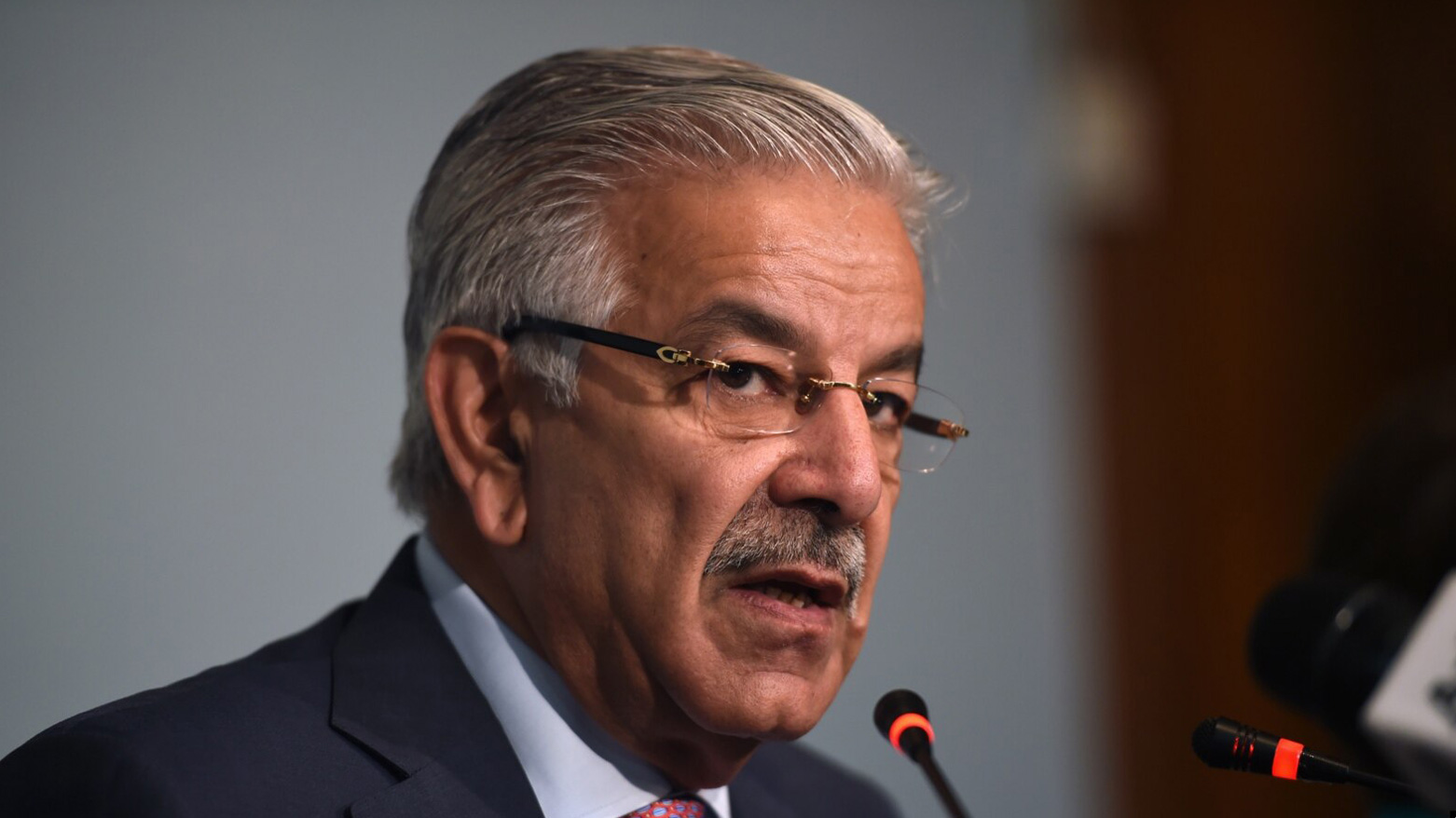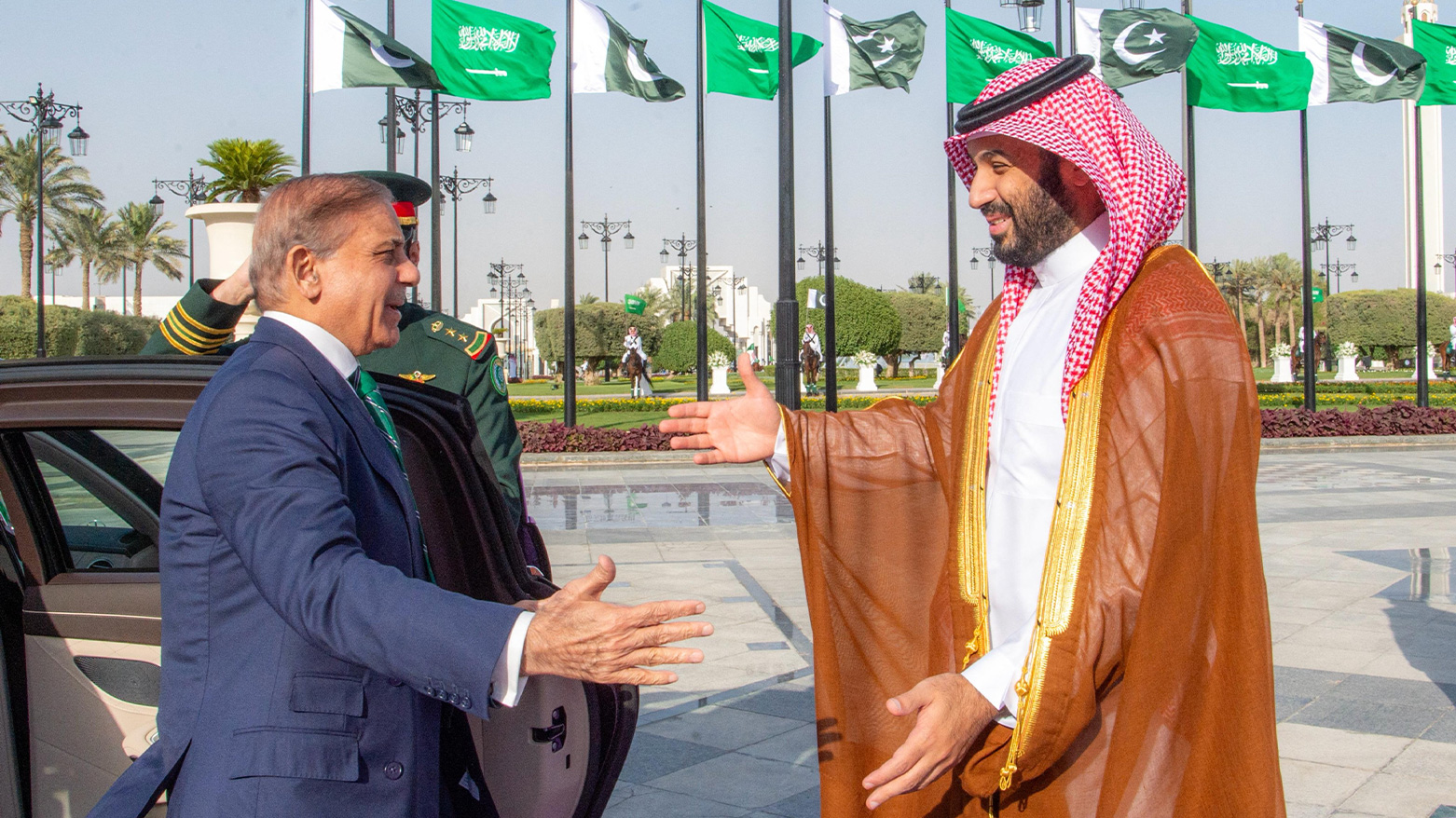Pakistan Pledges Nuclear ‘Availability’ to Saudi Arabia Under New Defense Pact
Pakistan's defense minister said his nation’s nuclear program "will be made available" to Saudi Arabia under a new mutual defense pact. The landmark agreement, which declares an attack on one nation an attack on both, places the Gulf kingdom under Islamabad's nuclear umbrella.

ERBIL (Kurdistan24) – Pakistan’s defense minister has made the unprecedented and explicit declaration that his country's nuclear program "will be made available" to Saudi Arabia if needed, placing the Gulf kingdom squarely under the protective umbrella of Islamabad's atomic arsenal as part of a landmark mutual defense pact signed this week. The announcement, which fundamentally alters the strategic calculus of the Middle East, confirms long-held speculation about the depth of the two nations' security ties and sends a powerful signal to regional adversaries, particularly Israel, which is widely believed to be the region's sole, undeclared nuclear power.
In an interview with Pakistan's Geo TV late Thursday night, Defense Minister Khawaja Mohammad Asif provided the first specific public acknowledgment of the nuclear dimension of the new "Strategic Mutual Defence Agreement," which stipulates that an attack on one nation will be considered an attack on both.
“What we have, and the capabilities we possess, will be made available to (Saudi Arabia) according to this agreement,” Asif stated, as reported by the Washington Post. He emphasized the maturity of Pakistan's nuclear forces, saying, “Let me make one point clear about Pakistan’s nuclear capability: that capability was established long ago when we conducted tests. Since then, we have forces trained for the battlefield.”
The agreement, signed Wednesday in Riyadh by Pakistani Prime Minister Shehbaz Sharif and Saudi Crown Prince Mohammed bin Salman, marks the most significant upgrade in the two countries' defense relationship in decades. While the finer details of the pact have not been made public, Asif was unequivocal in his interpretation of its core commitment. When asked if an attack on one country would trigger the military involvement of the other, he responded, "Yes, absolutely. There is no doubt in this."
He clarified, however, that the accord is not an "aggressive pact" but a defensive arrangement akin to NATO, designed to provide an "umbrella" of joint deterrence. “If there is aggression, whether against Saudi Arabia or Pakistan, we will jointly defend against it,” he told Geo News.
The timing of the pact is deeply rooted in the current geopolitical turmoil roiling the Middle East and South Asia. The signing came just days after an Israeli airstrike in Qatar targeting Hamas leaders killed six people, an act that sent shockwaves through Gulf Arab nations and heightened their concerns about regional security and the reliability of traditional Western guarantees.
A joint statement issued by Islamabad and Riyadh noted that the deal reflects the "shared commitment of both nations to enhance their security and to achieve security and peace in the region and the world." For Saudi Arabia, the agreement strengthens its defenses against a range of perceived threats, from Iran and its network of regional proxies to the broader instability stemming from the war in Gaza.
The pact also follows a dangerous military flare-up between Pakistan and its nuclear-armed neighbor, India. In May, the two nations engaged in a four-day conflict involving missile and artillery fire that left over 70 dead, the deadliest clashes since the 1999 Kargil War. Saudi Arabia played a behind-the-scenes diplomatic role in de-escalating that crisis, underscoring its growing influence.
Pakistan's nuclear program was originally developed to counter India's atomic capabilities. According to the U.S.-published Bulletin of Atomic Scientists, India is estimated to possess 172 nuclear warheads, while Pakistan has 170.

The deep, albeit often discreet, relationship between Saudi Arabia and Pakistan's nuclear program has been an open secret for years. Retired Pakistani Brig. Gen. Feroz Hassan Khan has previously stated that Saudi Arabia provided "generous financial support to Pakistan that enabled the nuclear program to continue, especially when the country was under sanctions."
This historical financial linkage has long fueled speculation that Riyadh had a de facto claim on Islamabad's nuclear deterrent. Asif's comments now appear to formalize that understanding.
In his interview, the Pakistani defense minister also left the door open for the pact to expand into a broader regional security alliance. Asked if other Arab nations could join the agreement, he responded, "I cannot prematurely answer this, but I will definitely say the doors are not closed."
He said he had long advocated for a NATO-like arrangement for the region, stating, "I think it is a fundamental right of the countries and people here, particularly the Muslim population, to together defend their region, countries and nations."
The agreement institutionalizes a security partnership that dates back to 1967 and deepened significantly after the 1979 Grand Mosque seizure in Mecca, when Pakistani special forces assisted Saudi troops in reclaiming the holy site. For decades, Pakistan has provided extensive training and advisory support, with as many as 20,000 Pakistani troops stationed in the kingdom at various times.
Asif described the new pact as a formalized "extension" of this long-standing cooperation. "I think that [pre-existing] relationship has been more defined now and that understanding has been given the form of a defence agreement," he told Dawn.
The deal also carries significant implications for Saudi Arabia’s complex and often hostile relationship with Iran. Despite a China-brokered restoration of diplomatic ties in 2023, deep-seated rivalry and mutual suspicion persist, particularly over Iran’s support for Houthi rebels in Yemen, who have directly targeted Saudi cities and oil facilities for years.
By anchoring its defense to a nuclear-armed military power like Pakistan, Riyadh is sending an unmistakable message of deterrence to Tehran, potentially recalibrating Iran's strategic calculations and raising the stakes in the regional balance of power. A potential Saudi-Pakistani nuclear link would be a strategic nightmare for Iran, likely prompting Tehran to accelerate its own nuclear program.
For Pakistan, the agreement offers both strategic and economic benefits. It solidifies Islamabad's standing as a key security provider in the Muslim world and is expected to secure vital Saudi investment and financial support at a time of severe economic strain. However, it also ties Pakistan's security inextricably to the volatile strategic architecture of the Gulf, a region defined by shifting alliances and unpredictable conflicts.
Defense Minister Asif was defiant when questioned about the potential reaction from the United States, which has previously sanctioned Pakistan over its nuclear and missile programs. He stated that he felt there was "no ground or justification for any other third party to be involved in the development."
He also used the interview to level harsh criticism at the government in Afghanistan, which he accused of providing a safe haven for terrorist groups like the Tehreek-e-Taliban Pakistan (TTP) that launch attacks inside Pakistan. "I say with no ambiguity: Afghanistan is a hostile country," Asif declared, blaming the consequences of two wars in Afghanistan, from which the U.S. withdrew, for the ongoing instability.
As the region grapples with the fallout from this historic agreement, the world is now confronted with a new and potentially destabilizing reality: the formal extension of a nuclear umbrella over one of the world's most critical and contested regions.